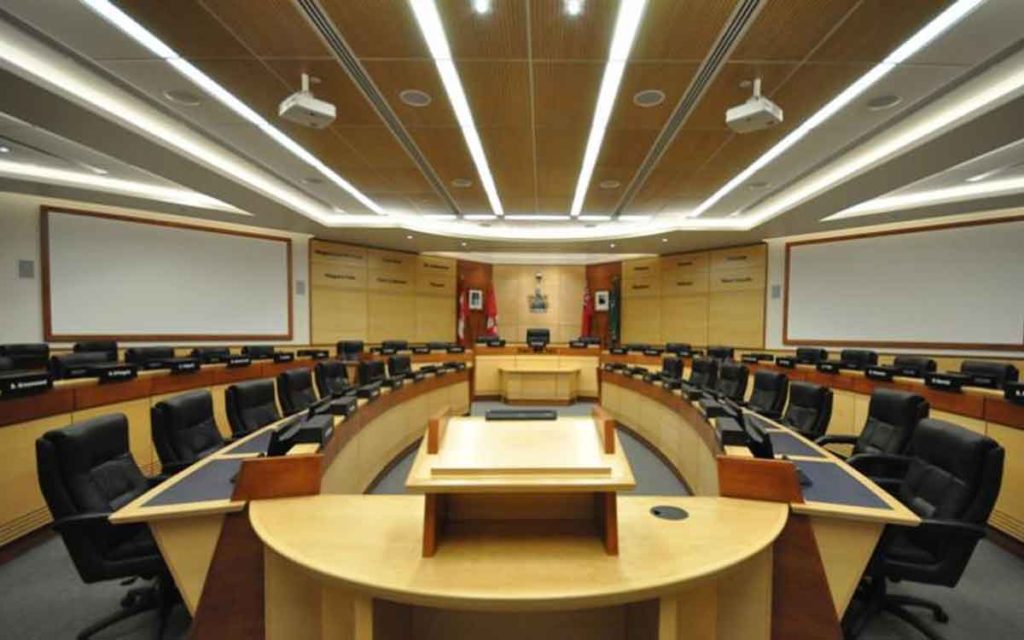
Regional Council has given their stamp of approval for its 2021 budget that will result in the regional portion of the tax bill rising 1.8 per cent.
The Region says for the average property assessed at $278,764, homeowners will see the regional portion increase by $29, totalling $1640 for 2021. Local and education taxes make up the remaining portions of the total bill.
The tax hike is on top of a 4.5 per cent increase for waste management services with its new bi-weekly pickup schedule and a 2.0 per cent increase for water and wastewater services which Regional Council approved earlier this month.
This current council has now passed tax increases for three consecutive years including a nearly a four per cent hike in 2019 and an almost six per cent increase in 2020.
Allowing the Region to avoid another above rate of inflation tax jump for 2021 was the more than $23 million from emergency provincial and federal funds as well as Regional reserves that were used to offset COVID-19 related costs and lower the final tax increase placed on homeowners. The provincial and federal funds were provided through the Safe Restart Funding Agreement that is administered by the provincial government.
Originally the Region was leaning towards a 2.9 per cent increase for 2021 but a last minute motion put forward by St. Catharines Mayor Walter Sendzik to dip into the Taxpayer Relief Reserve Funds for $4.3 million allowed that number to drop to the 1.8 per cent. While that motion ultimately passed, some councillors expressed their concerns.
Pelham Councillor Diana Huson said at some point the Region needs to stop adding and start making cuts as the current spending rate will be unsustainable. It wasn’t that long ago that the Taxpayer Relief Reserve Fund was at $30 million. It is now down to $14 million. “I hear a lot of talk about safeguarding taxpayer’s money but I’m not seeing a lot of action,” said Huson. She added that bottoming out the Region’s savings isn’t a way to prepare for the future.
St. Catharines Councillor Laura Ip spoke against dipping into reserves saying that no matter what year it is or what the tax increase is, residents will complain. “I think the intent here, of course, is very good, it is an extremely difficult year, um, I really also think though that taxpayers every year are going to tell us this is an extremely difficult year and they don’t want to see any increases,” said Ip.
With the fallout of the pandemic throughout 2020 and the ongoing challenges associated with COVID-19 in 2021, the regional budget saw unique challenges versus years passed.
The Region estimates that the total COVID-19 costs for 2021 to be $17.8 million and is considered fully funded and accommodated for by the Safe Restart funding agreement. The funds allow for a Pandemic Response Team that will allow Niagara Public Health to mitigate future risk to public health.
In addition, a $1.5 million annual contribution was included in the budget for the West Lincoln Hospital Redevelopment project that will see the expansion of health services in west Niagara. The total Regional commitment is set at $12.6 million in total.
$1.3 million was also provided to Niagara EMS to provide for system transformation funding that will ensure high quality patient care while avoiding the incremental costs of ambulances.
“Council approved a budget that maintains valued programs and services for our community but also ensures that we come out of this pandemic stronger,” Niagara’s Budget Chair Gary Zalepa said. “I want to thank the residents for taking part in this budget process and my colleagues on Council for collaborating on a responsible financial plan for Niagara.”
In December, the Ontario Government announced further funding for Niagara municipalities under the federal-provincial Safe Restart Agreement. The agreement outlines joint emergency funding between the federal and provincial governments to assist in accommodating COVID-19 related costs and lost revenue attributed to the pandemic.
“On behalf of Regional Council, I want to formally thank the Province of Ontario for their recent COVID-19 related funding announcements,” Regional Chair Jim Bradley said in a December statement when the additional funds were announced. “This critical and welcomed funding will provide both much needed financial relief for the numerous unexpected costs related to the pandemic, as well as a significant boost for our affordable housing and homelessness infrastructure in Niagara.”
The 2021 Regional budget includes funds to support over half a billion dollars for the Region’s capital program that oversees large infrastructure projects such as the planning and constructing of the future South Niagara Falls Wastewater Treatment Facility. The facility is expected to support increased population growth and new economic opportunities in south Niagara.

Kevin has spent over two decades as a public relations professional in a variety of sectors including professional sports, the arts, industry and healthcare. After tiring of the daily commute to Toronto he returned to Niagara and launched The Niagara Independent, an online news source published twice weekly.
He is a graduate of Brock University, Niagara College and the Richard Ivey School of Business. He was named one of Niagara’s 40 Under Forty in 2005.
Kevin is most proud of his twin daughters. He is also a triathlete and four-time Ironman finisher.




















